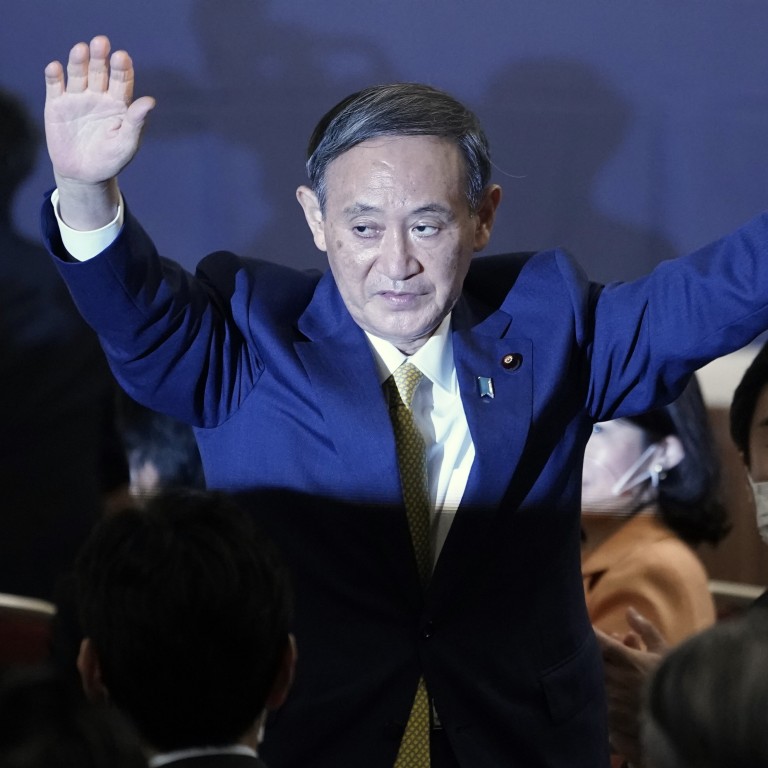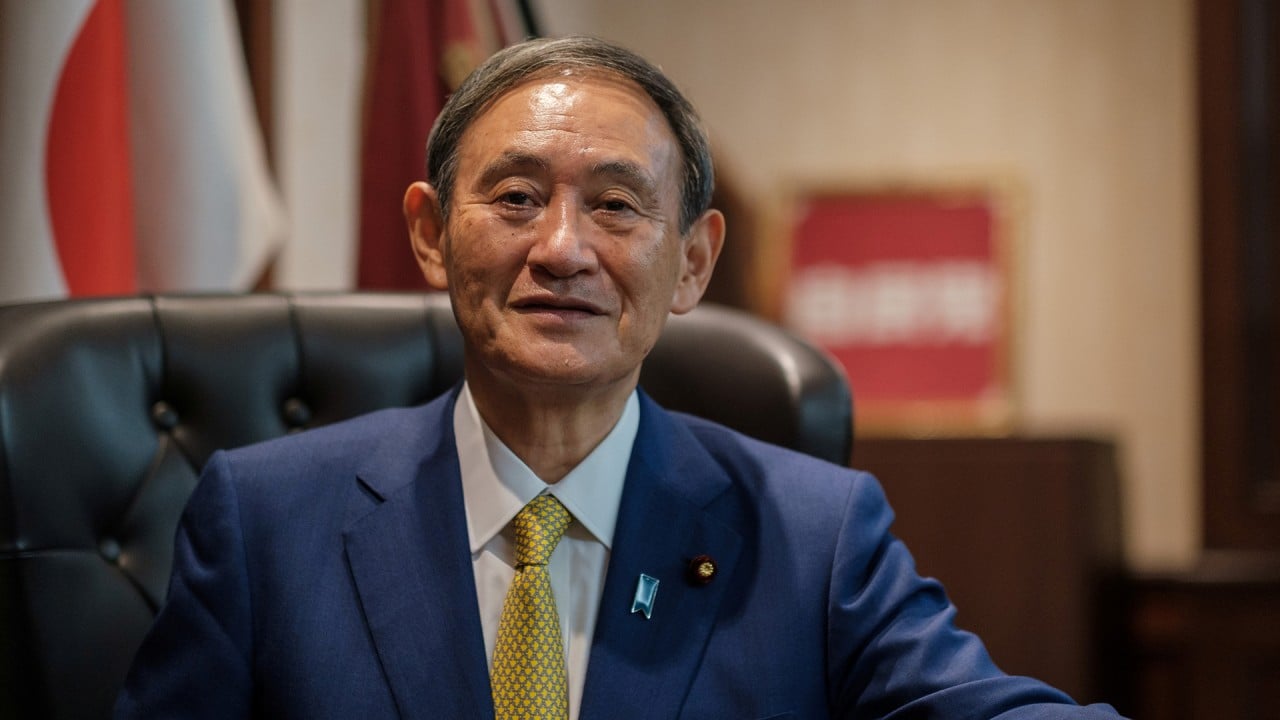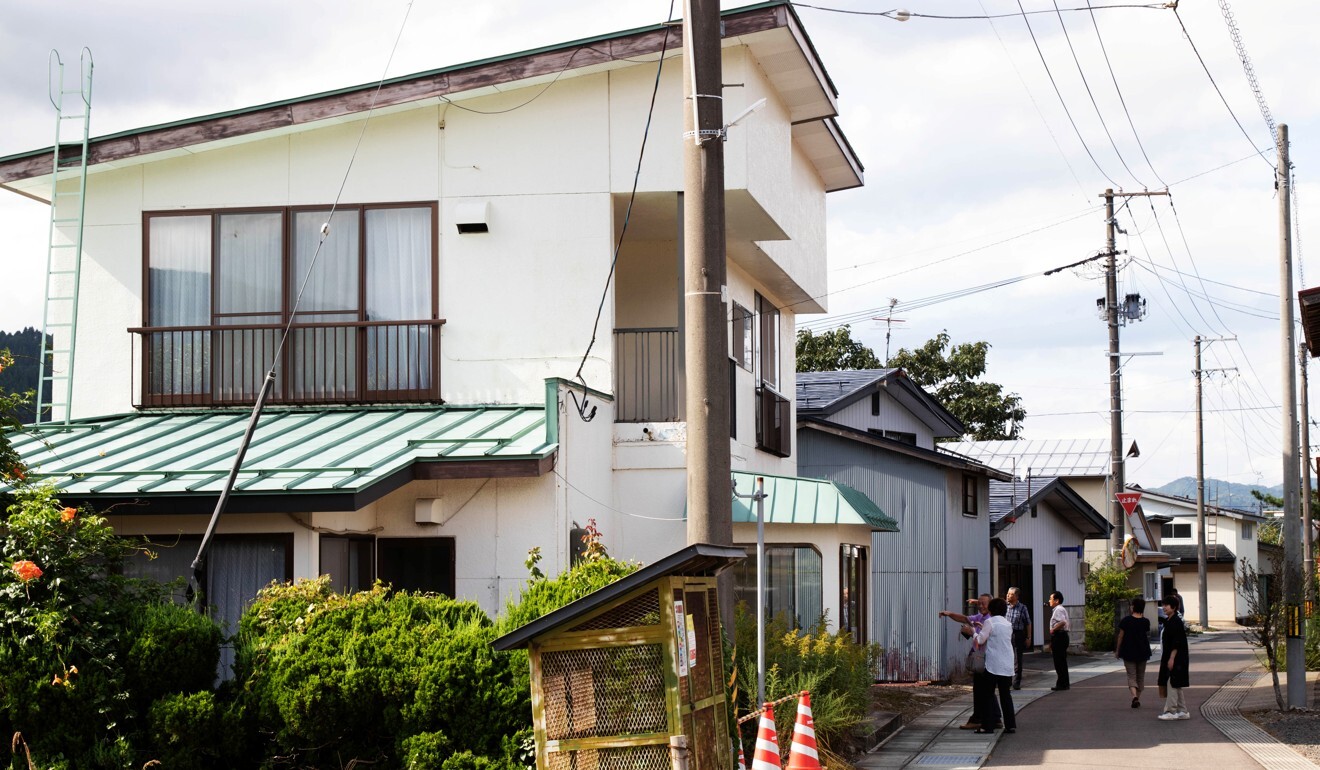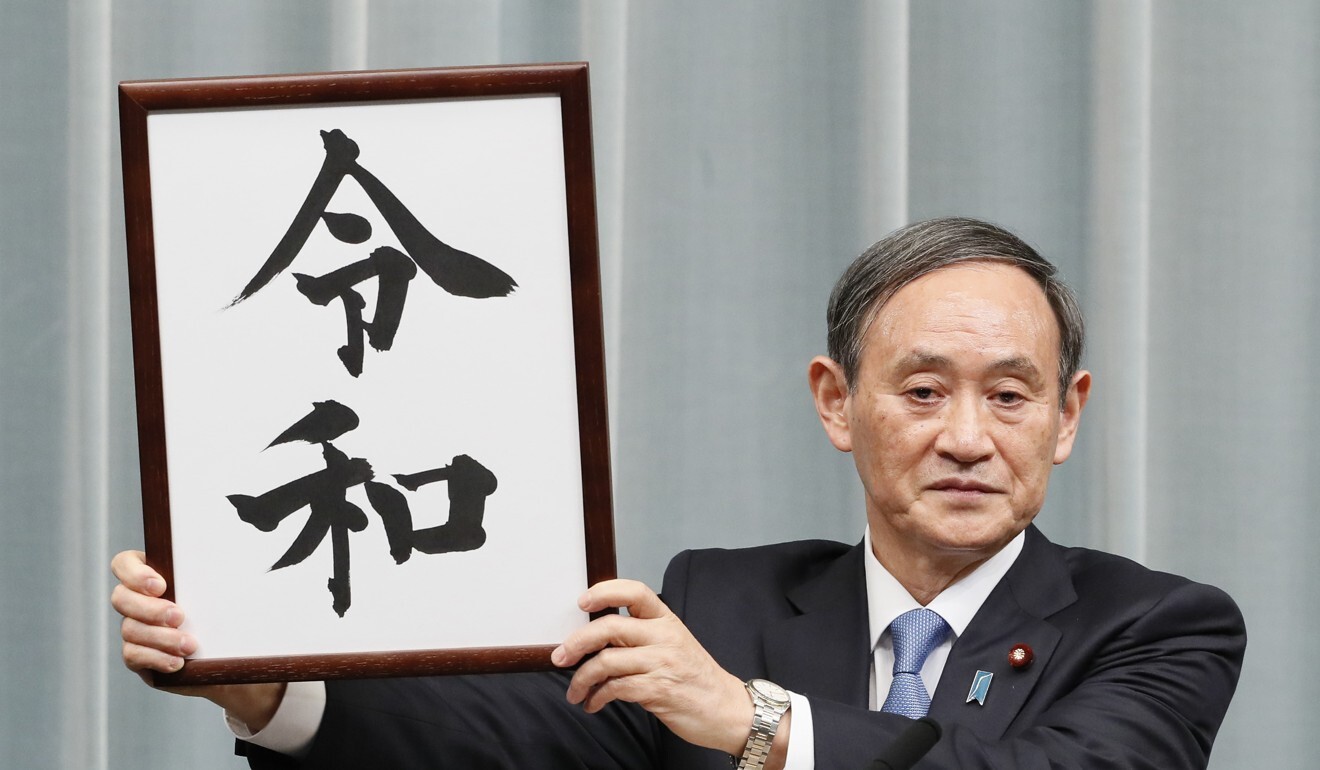
Japan’s Suga wins LDP race to succeed Prime Minister Shinzo Abe
- I will devote all of myself to work for Japan and its citizens, Suga said after winning 377 votes
- The long-time ally of Abe has said he will pursue his predecessor’s ‘Abenomics’ and follow a diplomatic line centered on the US-Japan alliance
The 71-year-old easily won the ballot, taking 377 of a total of 534 valid votes from LDP lawmakers and regional representatives. Rival Shigeru Ishiba, a former defence minister, won 68 votes and ex-foreign minister Fumio Kishida got 89.
Suga’s appointment will bring to an end the record run of his ailing boss, Abe, who has served since 2012 and forged an identity on the global stage that the world’s third-largest economy had often lacked.

04:20
Yoshihide Suga set to become Japan’s next prime minister after winning ruling party leadership
“I was born as the oldest son of a farmer in Akita,” Suga said after the vote. “Without any knowledge or blood ties, I launched into the world of politics, starting from zero - and have been able to become leader of the LDP, with all its traditions and history.”
“I will devote all of myself to work for Japan and its citizens,” he added.
As Suga succeeds him, analysts say no major policy reversals are on the agenda, and the candidate himself has said his run is intended to ensure a continuation of Abe’s key policies.
The next prime minister will face a raft of complicated challenges.

02:19
Japan’s Prime Minister Shinzo Abe resigns for health reasons
Suga has said kick-starting the economy will be a top priority, along with containing the coronavirus – essential if the postponed Tokyo 2020 Olympics are to open as planned in July 2021.
He added that more should be done on monetary and fiscal policy, if needed to protect jobs and companies during the current Covid-19 crisis.
Suga has been outspoken on some issues, including the need for more competition among mobile phone providers. He has said Japan has too many regional financial institutions, and is a strong proponent of introducing casino resorts to bolster tourism.
With Modi-Abe bromance gone, will India’s ties with Japan remain solid?
“Now is a difficult time for Japan as the US is putting pressure on China,” said Makoto Iokibe, a professor of political and diplomatic history at University of Hyogo.
“But simply following the path Washington is pursuing and raising tensions with China is not in Japan’s interest,” he said.
“Even if the leader changes, we cannot afford to change our posture with the United States,” Ichiro Fujisaki, a former Japanese ambassador to the US told Bloomberg Television.
“Being surrounded by North Korea, China and Russia, US-Japan relations have to be the cornerstone of our foreign policy.”
Abe wanted Japanese women to ‘shine’. What happened?
“Suga wants to appear to be continuing Abe’s political efforts but also demonstrate his personal political and diplomatic skills to mark himself as a new, creative leader,” said Young-Key Kim-Renaud, a professor emeritus at the George Washington University.
One key unknown remains whether Suga will decide to call a snap general election to consolidate his position and avoid being seen as a caretaker facing a new vote in a year – when Abe’s mandate would have ended.

Several senior government officials have mooted the possibility, perhaps as early as October, but Suga has been circumspect so far.
A large part of Japan’s fractious opposition has recently come together in a new bloc, hoping to pose a stronger challenge to a ruling party that has held power for all but a few years in the last six decades.
But the LDP would still be heavily favoured in any new elections, even if Suga’s personal appeal to voters remains an open question.
“Mr Suga is capable of implementing policies by controlling bureaucrats, but his weakness is in winning the heart of the public,” said Iokibe.
As a government spokesman, Suga has earned a reputation for wielding his power to control Japan’s sprawling and powerful bureaucracy and help push through government policies.
What is ulcerative colitis, cause of Abe’s resignation as PM?
Unlike many in the conservative LDP, Suga is not a political blue blood, and grew up the son of a strawberry farmer in rural Akita, in northern Japan.
He moved to Tokyo after high school and worked odd jobs to put himself through night college, before being elected to his first office in 1987, as a municipal assembly member in Yokohama outside Tokyo.
He won a lower house seat in 1996 and has been a long-time backer of Abe, pushing him to stand for a second term despite his disastrous first run in office, which ended after just a year.

When Abe defied the odds and returned to power in 2012, he appointed Suga to the powerful chief cabinet secretary role, from which he is said to have helped push through several landmark Abe policies, including a loosening of restrictions on foreign workers.
Japan’s next PM: with Abe gone, could Suga hit China-US sweet spot?
While Abe ignored the advice, prompting regional anger and a rare US rebuke, he has not repeated the trip since, even as members of his cabinet have visited.
Experts say Suga is driven by pragmatism and he is seen by lawmakers along the political spectrum within the LDP as a neutral figure.
He has allowed only occasional glimpses into his personal life with his family far from the spotlight, but revealed in interviews.
Additional reporting by Reuters and Bloomberg

.png?itok=arIb17P0)